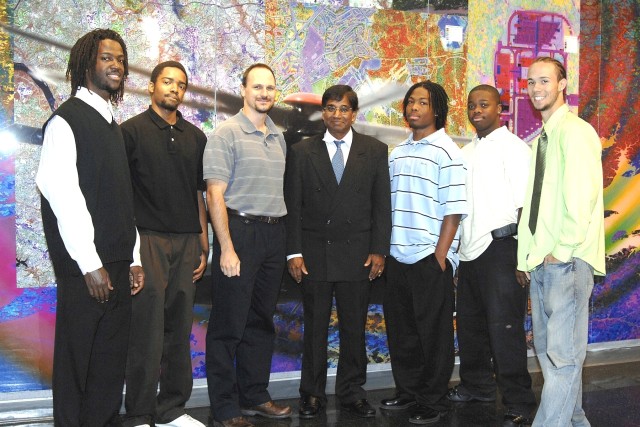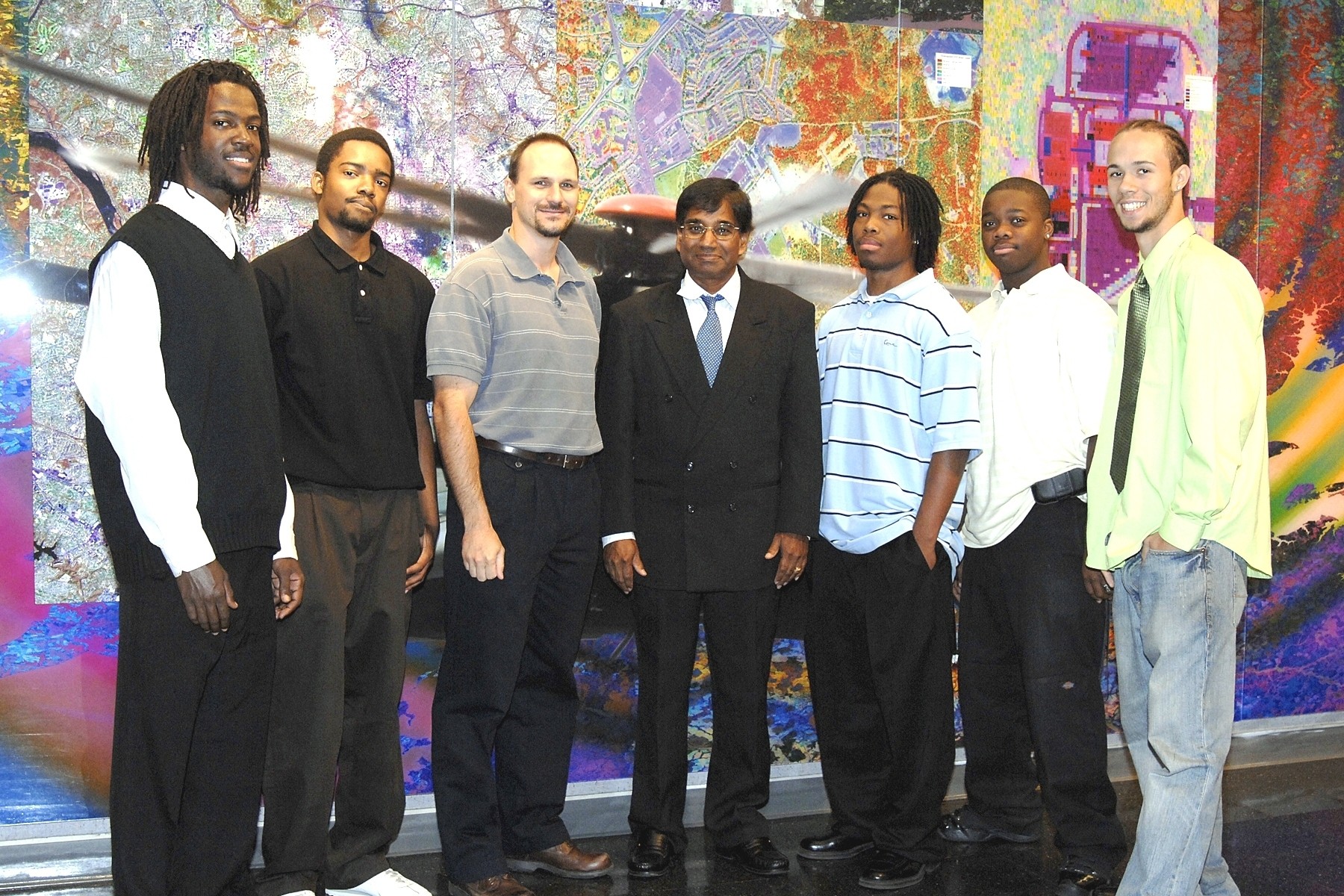
ADELPHI, Md. - Five undergraduate students from Edward Waters College, a historically Black college located in Jacksonville, Fla., spent the summer at the U.S. Army Research Lab where they worked closely with scientists and engineers making significant contributions to their team's research projects.
The students are enrolled in a dual degree mathematics/electrical engineering program being developed at EWC in conjunction with Florida State University, Florida Agricultural & Mechanical University, and Purdue University.
The goal of the program is to provide better quality experiences in science, technology, engineering and mathematics to under-represented students, and steer students and faculty into careers in research and development.
Students enter EWC and take courses towards their engineering degree for three years on the EWC campus. For their last two years or until completion, students take classes at the FAMU/FSU College of Engineering, in the FAMU Electronic Engineering Technology Program or Purdue University's College of Engineering.
Dual degree candidates will earn a Bachelor of Science from EWC and a Bachelor of Science in Engineering either from FAMU/FSU, FAMU or Purdue University upon completion of the academic requirements of the institutions.
To enroll into the program, students must have a high school diploma, 3.0 or higher GPS on a 4.0 scale, minimum SAT score of 1000 or ACT of 21 and excellent writing and verbal communication skills.
In addition, to stay in the program, students must maintain a minimum of 2.5 GPA, must have strong commitment, enthusiasm and be willing to spend 10 weeks of their summers at ARL.
The program scholarship covers tuition, fees, room and board.
This year, the student's areas of study at ARL included material studies of infrared semiconductor systems, fabrication and characterization of solar cell materials, development of high power electronics, and machine language translation of Swahili.
ARL's Dr. Greg Brill was the point-of-contact for the Congressional program, now in its second year of a four-year contract.
"This program is an excellent opportunity for undergraduate students interested in science and technology to learn from world class engineers and scientists, working on real issues of importance to the Army," said Brill. "In turn, the students bring a level of enthusiasm that makes it easy to engage them and enhance their formal science education with valuable real-life lab experience."
Charles Piccioni, undergraduate student, worked within the power components branch developing better hardware to dissipate heat from high power electronics.
Two students, Damari Gupton and Demarcus Newton, worked in the infrared materials and devices branch measuring characteristics of different semiconductor materials and conducting experiments designed to improve key material properties.
The electrochemistry branch hosted student Larry Bryant who worked with a group studying solar cell technology to develop and improve new power generating materials so the future Soldier will have less reliance on conventional batteries.
Finally, Omar Scott, student, worked with a team in Computational & Information Sciences Directorate to initiate and develop machine language translation of Swahili, a language spoken throughout the horn of Africa and increasingly important to the Army mission.

Social Sharing